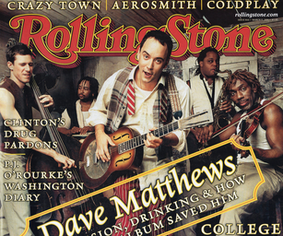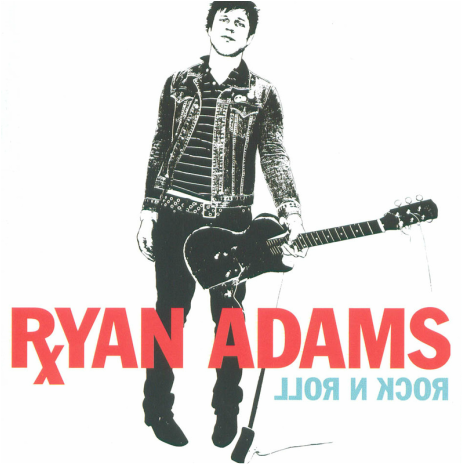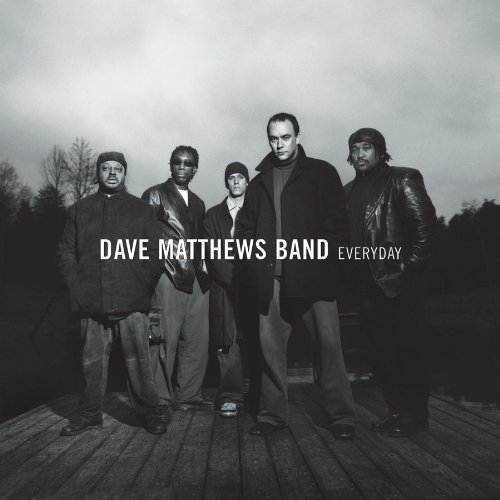FASCIST MUSIC
|
It's a story as old as artistic integrity: Indie rocker hits it big doing it his way and thinks he has the right to jag into something darker, label demands a more radio-friendly sound, artist balks but ultimately caves. Ryan Adams's third and Dave Matthews Band's fourth records fit the bill exactly. Adams crooned rainy-day intimacy on Heartbreaker and made a game but slightly lackluster swipe at superstardom with Gold. With Under the Table and Dreaming, Crash, and Before These Crowded Streets, DMB proved that a fervent fanbase, grassroots marketing, and great songs could overcome a lack of a genre or homerun singles. Both hit the studio in the early 2000s ready for a deep dive inward. In fact, both recorded an album's worth of despondent, spare, and uneven songs. Their respective labels were unimpressed and gently demanded that they start over: more guitars, more hooks, better work. Adams and DMB both complied. A few key differences emerge at this point, however. Adams was petulant and enraged. He thought his initial set of mopey songs, which would later be released as Love as Hell, was genius, and scoffed at his label's demand for a more rock sound. As a middle finger to his label (which, ironically, was the artist-friendly Lost Highway), he wrote and recorded a deliberately souped-up, meaningless album. Highlights (or lowlights) included a U2 parody, replete with glistening Edge-like guitar arpeggios and mock-profound lyrics ("So Alive," released as the first single); a song that sounds like an outtake from 1974 ("1974"), half an album's worth of post-grunge filler ("Burning Photographs" and "Luminol," to name two), and a song with the following lyrics: "I'm as lonely as boys / I'm as lonely as boys / I'm as lonely as monkeys taught to destroy / Anything they learn to enjoy" ("Boys"). The label released it, critics reacted with confusion or outright anger, and Adams disowned it. Ryan Adams and Dave Matthews are completely different characters, of course, and Dave's reaction matches his more earnest personality. He was just as upset as his label was that the dark, sleepy set his band recorded with producer Steve Lillywhite didn't work. So he barreled through a marathon writing and recording session with the help of pop svengali Glen Ballard, coming up with heavy, hooky songs just like Adams did. Matthews, however, wasn't joking. His band's Everyday record was just as slick, greasy, and empty as Rock N Roll, but DMB proclaimed it their best work. They cheerfully slogged through embarrassing music videos and awkwardly tried to slip dumb, offensive trifles like "I Did It" into concerts alongside their challenging and emotional repertoire. Only after fans had discarded Everyday in favor of the Lillywhite sessions did the band sheepishly and belatedly semi-disown the record.  Which is the more fascist effort? Adams consciously endeavored to create a fascist artifact of "label rock," and he certainly succeeded. But you could certainly make the argument that his record, while fascist on his face, was an arch anti-fascist commentary. Everyday doesn't get to hide within the safe cocoon of snideness; the label said jump, and Dave said how high. When you think of the way DMB repurposed the tropes of their old, organic work -- the crunchy Rolling Stone cover, the crowd-chant of "Everyday" -- you're left with the inescapable sense of dread that characterizes all the best fascist music. So while Rock N Roll hits more fascist notes in the absence of context, when you do consider context, as you must, Everyday is the more fascist record. Full disclosure: Rock N Roll is one of my favorite records by any artist ever. I like Everyday a lot, too.
0 Comments
|
What is fascist music?In Dave Marsh's 1979 review of Queen's Jazz, he wrote, "Indeed, Queen may be the first truly fascist rock band." No other word so neatly expresses supremacy of the powerful and devaluation of the individual. Archives
August 2022
Categories
All
|


 RSS Feed
RSS Feed
